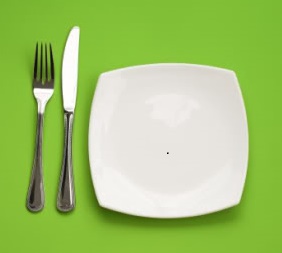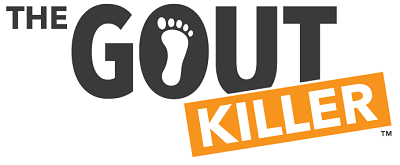[vc_row 0=””][vc_column][vc_column_text 0=””] If your doctor has told you to lose weight to help manage gout, you might be tempted to go on a brief fast or starvation diet. Do not do this!
If your doctor has told you to lose weight to help manage gout, you might be tempted to go on a brief fast or starvation diet. Do not do this!
Fasting and starvation diets have been clearly documented to increase uric acid levels and trigger gout attacks.
What Is Fasting?
The term “fasting” refers to the intentional abstinence from eating, often for religious or weight loss purposes.
Technically, fasting is the period of time from the end of one meal to the start of the next meal. Hence, the term “breakfast” is when you “break” your overnight fast.
Starvation and Elevated Uric Acid
- During a fast or starvation diet, the body breaks down muscle to use as fuel in the absence of sufficient fuel coming from intake of food. This breakdown of muscle produces two substances — ketone bodies and lactic acid — which impair the kidneys’ ability to eliminate uric acid, which leads to elevated uric acid levels and gout attacks.
- Dietary intake of potassium has been shown to lower uric acid levels, but the opposite is true as well — loss of potassium will increase uric acid levels. Many events can cause a loss of potassium including surgery, taking diuretics, and fasting or starvation diets.
. . .
I love the blogs and am trying to follow the diet as much as possible. I don’t have time in the day for exercise until the weekends, but so far since reading your blogs, I have not had a reoccurring attack. Keep up the good work and thank you for sharing the information. ~ Dan
. . .
Accidental Fasting Causes Gout
Many people unintentionally fast every day.
Have you ever woken up late, dashed out the door to get to work on time, and skipped breakfast? In this scenario, if you don’t eat lunch until 1 p.m. (having finished dinner the night before at 7 p.m.), you have unintentionally fasted for 18 hours!
This is not going to help you win the war on gout, especially if this pattern occurs frequently.
☆ Bottom Line: The best diet to control gout includes a consistent intake of high-quality, nutrient-dense foods…not a starvation diet.
SHARE THE LOVE!
☆ ☆ ☆
[/vc_column_text][/vc_column][/vc_row]

